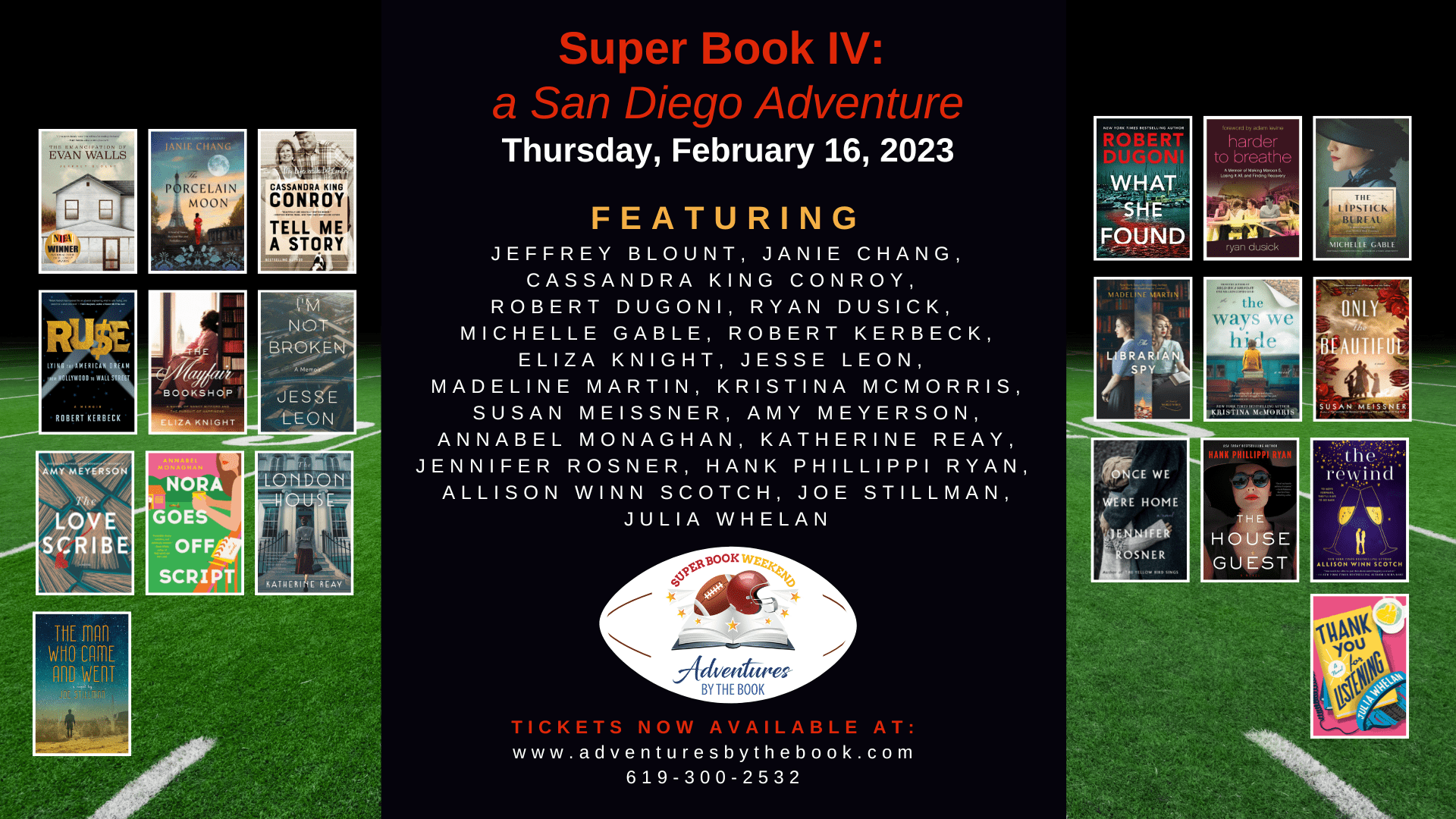.png)
Adventures By the Book announces Super Book IV: a San Diego Adventure featuring 22 New York Times/bestselling authors including half-time speakers Julia Whelan and Allison Winn Scotch
About the Live and In-Person Adventure
Virtual registration is now available!
It’s kickoff time! No, this isn’t about Super Bowl; this is about Super Book IV, and you are invited!
Join the team of 22 renowned authors, including half-time speakers, renowned audio book narrator and author Julia Whelan and New York Times bestselling author Allison Winn Scotch, who will give book enthusiasts and reading fans the experience of a lifetime, complete with national anthem, special half-time presentation, four quarters of excitement, and crowd-pleasing food, scheduled to take place on Thursday, February 16, 2023. at:
Admiral Baker Golf Course Clubhouse, 2400 Admiral Baker Rd #3604, San Diego, CA 92124
Registration
Available at the link to Adventures by the Book website at the bottom of this post—scroll all the way to the bottom of the page. Your choice of End Zone Registration ($140) and/or MVP add-on ($25) to request seating with your favorite author (limited availability).
And, they are now offering Virtual Registration ($35), which includes a Zoom link to view the live sessions and either 1 hardcover book or 2 paperback books.
Your ticket includes:
• Daylong Adventure featuring up to 22 New York Times and bestselling authors
• FREE copy of Thank You for Listening paperback book by Julia Whelan
• FREE copy of The Rewind paperback book by Allison Winn Scotch
• $25 reduced early bird ticket pricing available for the first 50 Adventurers
• Custom Super Book tote bag
• Continental breakfast
• Crowd-pleasing gourmet boxed lunch
• Collectible event program
• Seating at lunch tables with an author
• VIP option available to seat with your favorite author (limited availability)
• Multiple book signing autographing opportunities with all authors
• Photo ops with authors
• Meet and greet opportunities with the authors
• Books provided for sale and signing
• National anthem performance
• Four quarters of author activities
• Half-time presentation
• Discounted block of hotel rooms
• Fun prizes and giveaways
• …and much more
Book Pre-Sales
Books will be available for purchase and signing at the event. Or, pre-order copies using THIS ORDER FORM and then email completed forms to Amber at events@adventuresbythebook.com. Please note, only books purchased at the event or pre-purchased will be eligible for signing at the event.
For complete information, including a list of the speakers check out Adventures By the Book website: https://adventuresbythebook.com/event/super-book-iv-2-16-23/

